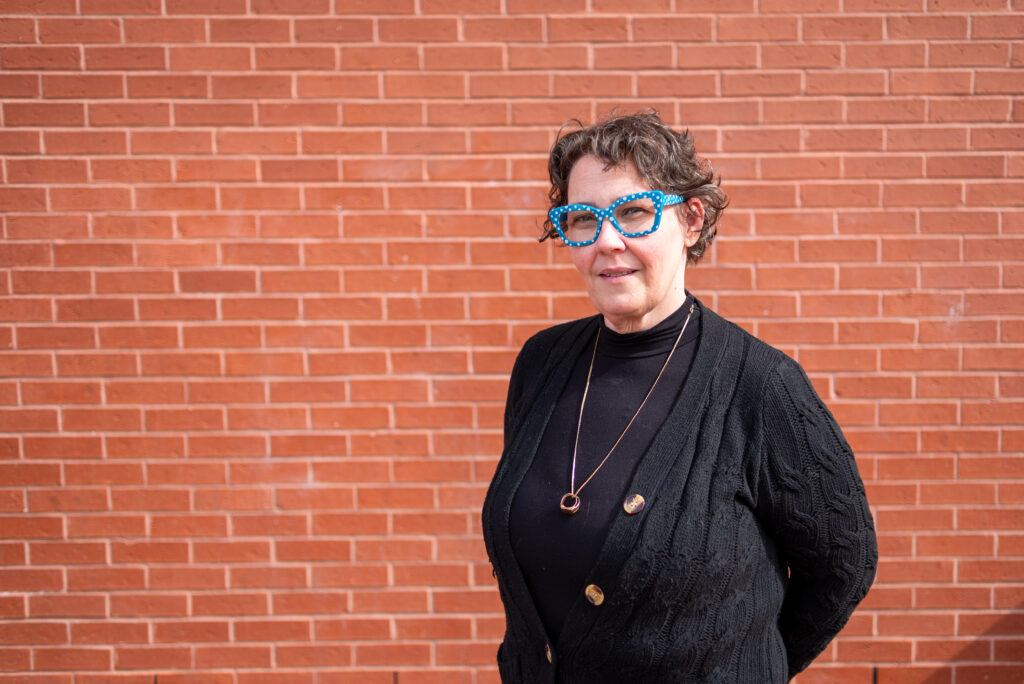Emily shared her story as part of MECEP’s Closing the Gap: Maine’s Direct Care Shortage and Solutions to Fix It report. Click here to read the full report.
Emily has almost 30 years of experience as a certified residential medication aid (CRMA) and direct support professional (DSP), working with adults with developmental disabilities and in assisted living settings. We first spoke with Emily for our 2023 report, The High Cost of Undervaluing Direct Care Work. Since then, Emily has left the field of direct care. She now works as a medical receptionist in Portland. Emily is a member of the Direct Care and Support Professional Advisory Council.
The assisted living facility where I was working changed ownership last year. We stopped getting Christmas bonuses and extra vacation hours for perfect attendance. Raises that were scheduled before the sale were ignored. It felt like a kick in the teeth. About 90% of the staff left. There were very few days when I worked only eight hours, and I often couldn’t take any kind of break because my wing was single staffed. There were so many days that I would leave in tears, feeling like I had failed my residents, because I was set up to fail. The system is just so broken. It feels like they will just use and abuse us until we’re all dried up and we’re just husks. I was so invested in these people, and it makes me angry that I’m not doing that work anymore because it was just so untenable.
Low pay is the main reason we can’t hire and retain workers in this f ield. People that are thinking about going into caregiving take one look at the pay and realize that they can go work at Five Guys or McDonalds or Dairy Queen and make as much if not more, and not have to worry about the stress and not have to worry about the overtime because somebody didn’t show up and you can’t leave.
There’s also the cost of education and training. It can cost hundreds of dollars to get your 40-hour CRMA, and companies want you to have it before they hire you, even if you already have your 24-hour CRMA, DSP, and [Personal Support Specialist] PSS certification. They’re all basically the same thing, but they won’t accept those in assisted living facilities. There’s a lot of confusion with training and qualifications that can deter people from wanting to get into direct care.
Legislators should come and see what it’s like for a single care worker to try to prioritize between helping the resident with explosive diarrhea and the resident sitting in her own urine and the resident who has fallen down and can’t get himself back up. They should see what it’s like when those things happen during meal time, when regulations require that worker to get all the trays delivered in just 20 minutes. Or when residents have wounds that need dressings changed three times a week, but the wound nurse authorized to change them only comes once a week. It would be nice if they could see what care workers go through and how they are put in impossible situations all the time.
I loved what I did. I hated the overtime and I hated the low pay, but I loved the job itself. I could go home at the end of every day knowing that I made someone’s life a little better. I see this as a societal issue. Every job has value. How is it that this job of taking care of human beings and keeping them alive and happy and comfortable and clean has less value than almost every other job? As a society, we need to wake up and make a shift in our perceptions.




